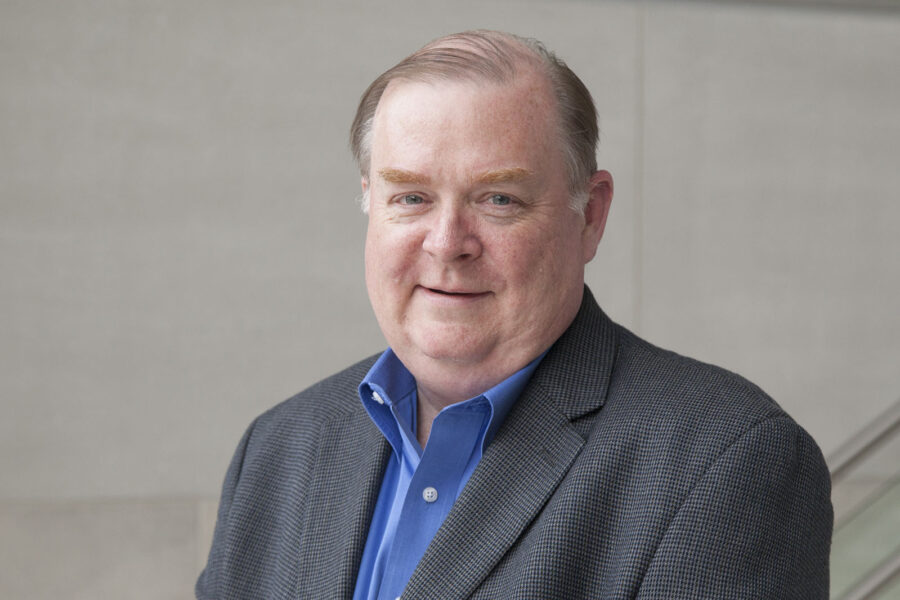Pete Smith, PhD, posed two questions to UNMC’s Breakthrough Thinking participants:
- How does an enterprise develop a long-range plan for an emerging technology such as artificial intelligence, and
- What new leadership roles and responsibilities will emerge in the organization around AI and machine learning in the years ahead?
Dr. Smith asked those very questions at the University of Texas at Arlington, where he serves as chief analytics and data officer.
On Jan. 29, Dr. Smith – as part of UNMC’s Breakthrough Thinking series – drew from his experience at UTA to provide a pathway for thinking about the future of data-driven work and data literacy training.
“Our mission is to bring data-driven decision making and high-end analytics, predictive modeling through machine learning, to our campus,” he said.
Dr. Smith is the founding administrator of University Analytics at UTA, a data science unit that engages more than 30 analysts toward achieving the strategic academic and business goals of the university. Since taking the leadership role in 2015, he has overseen the building of a campuswide analytics and learning analytics infrastructure and worked toward a campus culture of trustworthy data and analytics in planning and decision making. In 2022, he also took on the role of chief data officer for UTA.
During his talk, Dr. Smith outlined organizations and benchmarking processes that are helping UTA raise its capacity for data literacy and AI literacy. “We have been thinking at the goal of AI literacy but want to step back and bring the notion of data-driven work on our campus as a bedrock or foundational set of skills,” he said.
As a benchmark, UTA identified its campus data creators and data users, who, as part of their daily job, read, write and communicate with data. An audit was done, he said, to see if UT’s cultural norms, decision-making skills and technological and human capital were what was needed to be what Dr. Smith called “a first-rate data-driven campus.”
“We tend to get caught in the technology, tools and accessibility discussion,” he said. “Often, we do not think as deeply as we should about our community of data users beyond the purely technical.”
Now, using the information gleaned, UTA is building a roadmap to both better train data creators and users and link then together, he said.
“Data literacy will be front and center in the UTA path forward,” he said. “We see data literacy as a foundation for the AI endeavor.”
